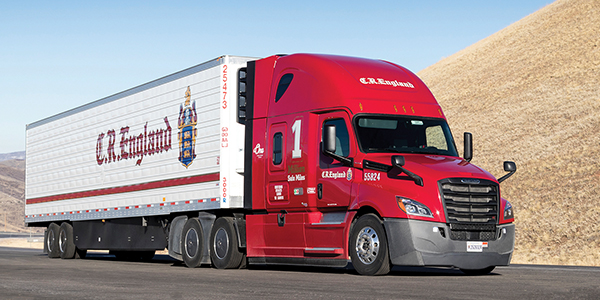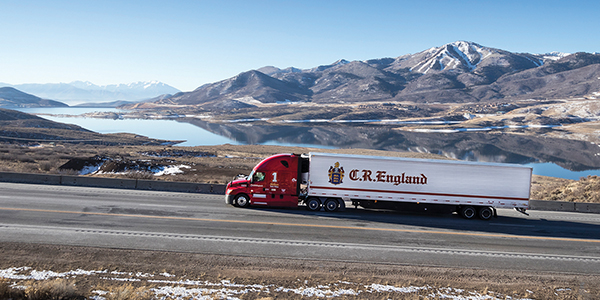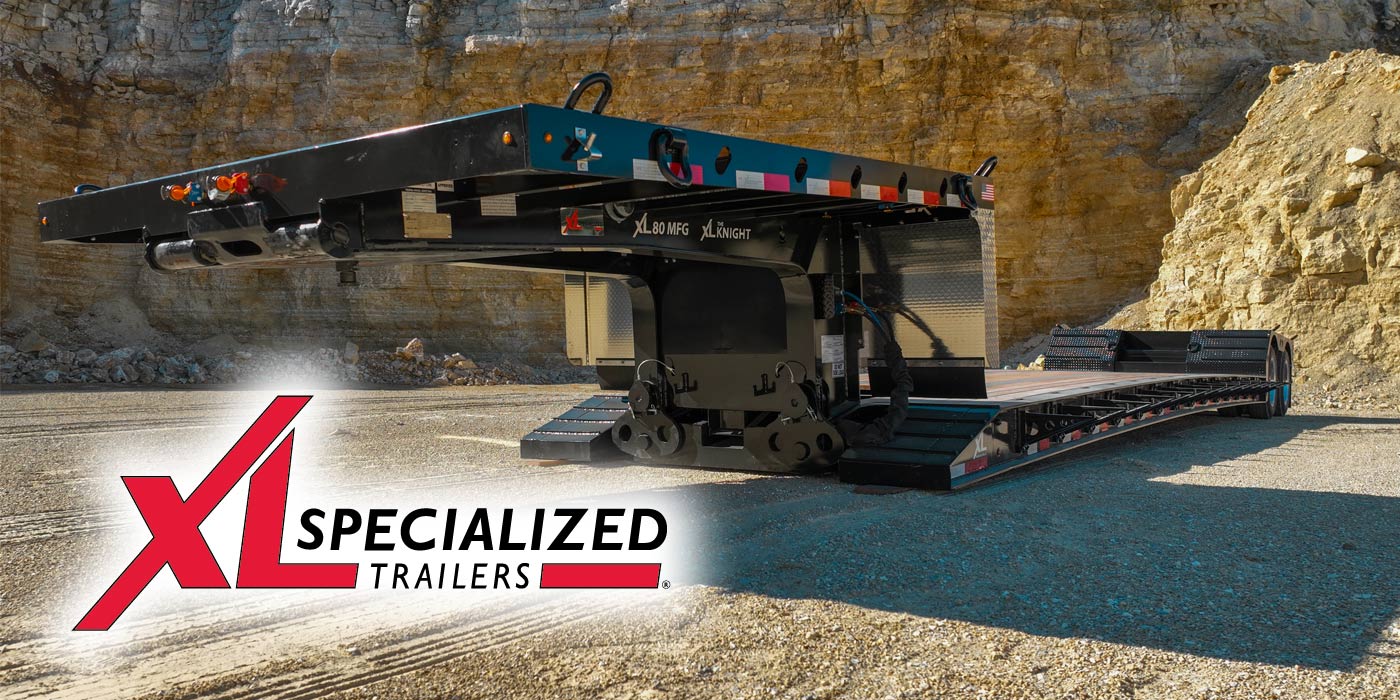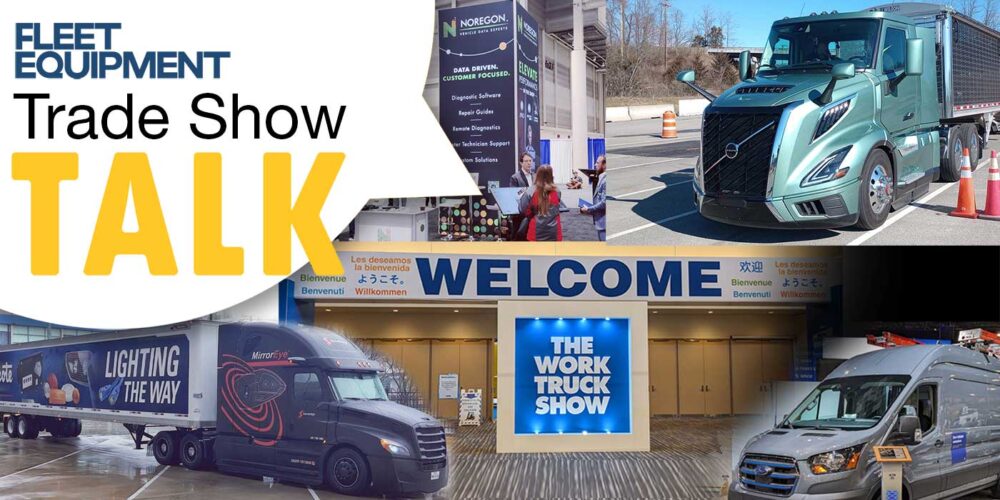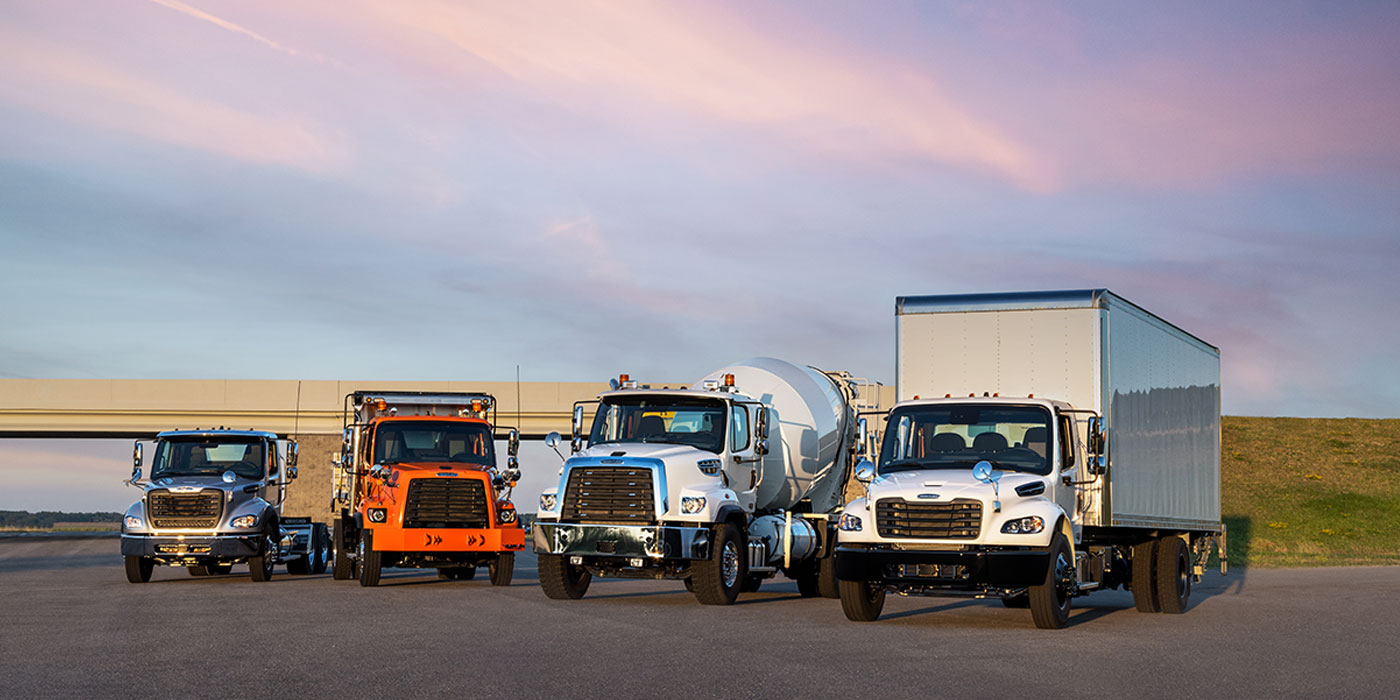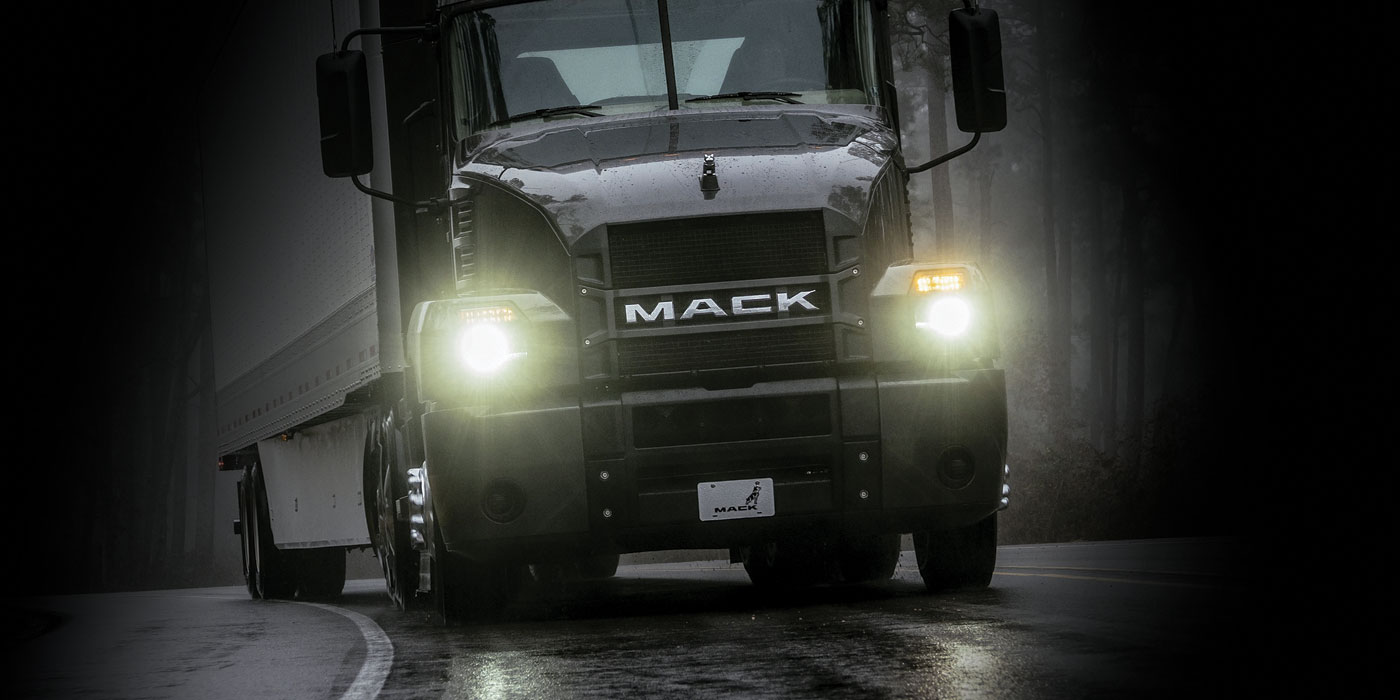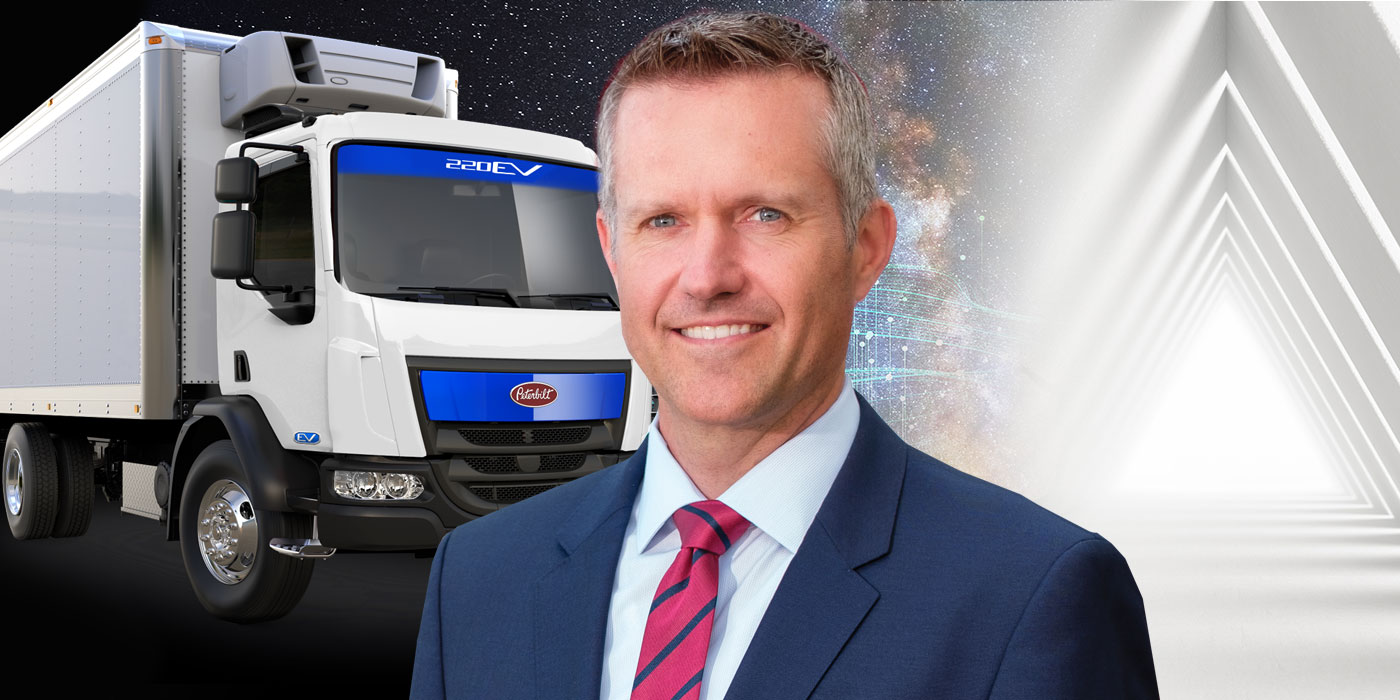One of the country’s best known trucking companies, C.R. England is also one of North America’s largest refrigerated service providers. Today, the 98-year old carrier provides national and regional refrigerated transportation in the continental U.S., dedicated fleet and intermodal services, as well as transportation into and out of Mexico.
“Across our operations, total cost of ownership is the most important factor,” says Ron Hall, the company’s vice president of equipment and fuel. “That includes acquisition, maintenance, fuel and trade costs, as well as anticipated residual value of equipment.
“Weight carrying capacity is our most important non-TCO consideration,” Hall continues. “Our specification choices from a service perspective are made around equipment weight. Applications like intermodal service and beverage hauling, for example, require very lightweight equipment.”
As a general rule of thumb, Hall notes, weight savings in the C.R. England fleet are worth approximately $0.75 per pound for tractors and $0.45 per pound for trailers.
“That was determined based on a focused fuel economy test using a weight reduction factor of 10,000 lbs.,” he explains. “We don’t have the ability to charge higher rates based on lighter weight equipment. The savings is a fuel economy benefit we get from using light weight options.”
Evaluating fuel economy
C.R. England requires fuel economy testing for any spec changes and has developed its own SAE Type II and SAE Type IV testing program to assess consumption. The program uses dedicated equipment, drivers, analysts and mock loads that allow it to evaluate the impact of things like aerodynamic devices and vendor platforms.
“We are also using on-road courses for fuel economy validation,” Hall adds. “One route is over flat terrain from Salt Lake City to Wendover, Nev. The other is over steep grades from Salt Lake City to Evanston, Wyo. We run multiple trips on these routes, then weigh the results as 80% influenced by the Wendover run and 20% influenced by the Evanston run.”
In the past year, C.R. England has tested a variety of currently used and next-generation aerodynamic devices, engines, tires, refrigeration unit settings, axle ratios and even tractors. The company also uses a Fuel Economy Factors Reporting feature in its Omnitracs systems to trend MPG by driver, time in top gear, time in cruise and idle percentage.
“We compare drivers within peer groups and recognize top performers and flag bottom performers for follow up fuel economy coaching,” Hall relates. “We also use the idle percent reporting and overall MPG reporting to flag trucks that need to be routed to shops for possible repair work.”
For Hall, the extensive and comprehensive focus on fuel economy at C.R. England is important as well because with a relatively short tradecycle, decisions need to be made as new equipment is added to the fleet on a regular basis. While the company tends to purchase on 48-month terms, it trades at 500,000 miles, which typically occurs between 36 and 42 months.
Leveraging specs
“Our quick trade cycle also gives us an edge because having some of the newest equipment on the road is something we can leverage in our driver recruiting efforts,” Halls says. “We also gather driver feedback on new specs from drivers. As their requests are validated through our testing process, we update our specs. Some of the changes that have come out of that process have been in-cab suspension dump valves, air release fifth wheel slides and locks, cabinet reconfiguration, hood mirrors, and curtain packages.”
Based in large part on driver feedback, according to Hall, C.R. England has also ordered mainly new Freightliner Cascadia tractors.
Today, the fleet’s 3,500 sleeper-equipped tractors include 3,200 Freightliner Cascadias and its 700 day cabs include 640 Cascadias. In 2018, the company has taken delivery of nearly 850 of the OEM’s new Cascadia models to date. Trailers in the fleet include 5,300 Utility, Wabash, Great Dane and Hyundai refrigerated models; 1,000 Wabash, Great Dane and Utility dry vans; and 1,650 Hyundai and CIMC refrigerated containers.
Safety is another important factor in C.R. England’s specification decisions. “We’ve been equipping tractors with roll stability control systems for a decade. We added lane departure warning technology about five years ago and collision avoidance solutions in mid-2015,” Hall says. “With our trade cycle, almost our entire fleet is now equipped with all three options. We also govern our engines so the tractors have a maximum road speed of 63 MPH on pedal and 65 MPH on cruise. That’s partly for fuel economy but it’s also about improving safety.
“We have developed a safety exception reporting process using telematics data so that we can have conversations with drivers when hard braking, speeding, following time violations and lane departure, forward collision warning and roll stability activation events occur,” Hall continues. “With visibility into those events, and data on our safety rate per million miles as well as accident cost per mile, we can rank drivers on their performance and use that in our safety recognition program, called Elite Awards, that allows them to earn points and spend them on company branded items.”
Justifying ROI
To justify its investment in new vehicles or technologies, Hall notes, C.R. England tracks expenses and compares them to benefits to come up with a break even term. “We then compare that figure with the ownership cycle of the item,” he explains further. “For example, if something has a 48-month break even point and we only operate the truck for 42 months, then it’s a failed ROI.
“Other ROIs, however, are more difficult to calculate, especially when there’s a component that requires estimation like its impact on driver turnover,” Hall adds. “In those cases, we calculate the ROI using all the available data and then employ a sensitivity scale. For example, adding in driver turnover improvement to the above example with no improvement we remain at a 48-month break even, but at a 20% improvement we’re at a 24-month ROI.”
Value is something C.R. England finds in its relationships with suppliers, Hall says. Financing through Daimler Truck Financial, for instance, gives the company flexibility to trade trucks early without penalties. “That can also benefit Daimler Trucks North America with another new sale,” he says. “Another example would be DTNA offering to improve residual values on spec changes for new technologies they feel will be well received by the used market down the road like automated transmissions and collision avoidance systems.
“The volume of our business with DTNA has also allowed us to partner with several dealerships to house their technicians at some of our eight facilities, which employ approximately 240 maintenance personnel,” Hall relates. “That has been a great way to streamline the repair process. In addition, about 50% of our maintenance work is outsourced, primarily to dealers and truck stops.
Focus on maintenance
“We choose outsource providers based on the service required, time required to do the work, warranty coverage, proximity to a company shop and driver status,” Hall explains. “We prioritize breakdowns and warranty work to dealers and complex repairs or any repair taking longer than four hours is outsourced so our technicians can focus on turning equipment quickly.”
To manage its maintenance operation, C.R. England uses TMT Fleet Maintenance software from Trimble (formerly under the TMW Systems brand). “Without maintenance software, identifying trends and finding solutions would be extremely difficult,” Hall says. “TMT software allows us to use VMRS codes to define the system and component and track parts and labor costs. By running reports we can identify and focus on high cost or high frequency events.
“A few years ago, for instance, after we identified a high cost area and changed our service interval and improved our technician training, our costs for that item were cut by two-thirds.”
C.R. England, headquartered in Salt Lake City, was founded in 1920 and today remains a fourth generation family-owned corporation. The company bills itself as “the most reliable refrigerated carrier in the nation” that is dedicated to providing a comprehensive range of transportation solutions to meet the requirements of a rapidly evolving customer base.
“We are driven to maintain our leadership role through time-tested services, technology and processes,” Hall says. “Our culture and values enable us to expand reliable services while keeping our commitments to safety, social responsibility and financial stability.”

